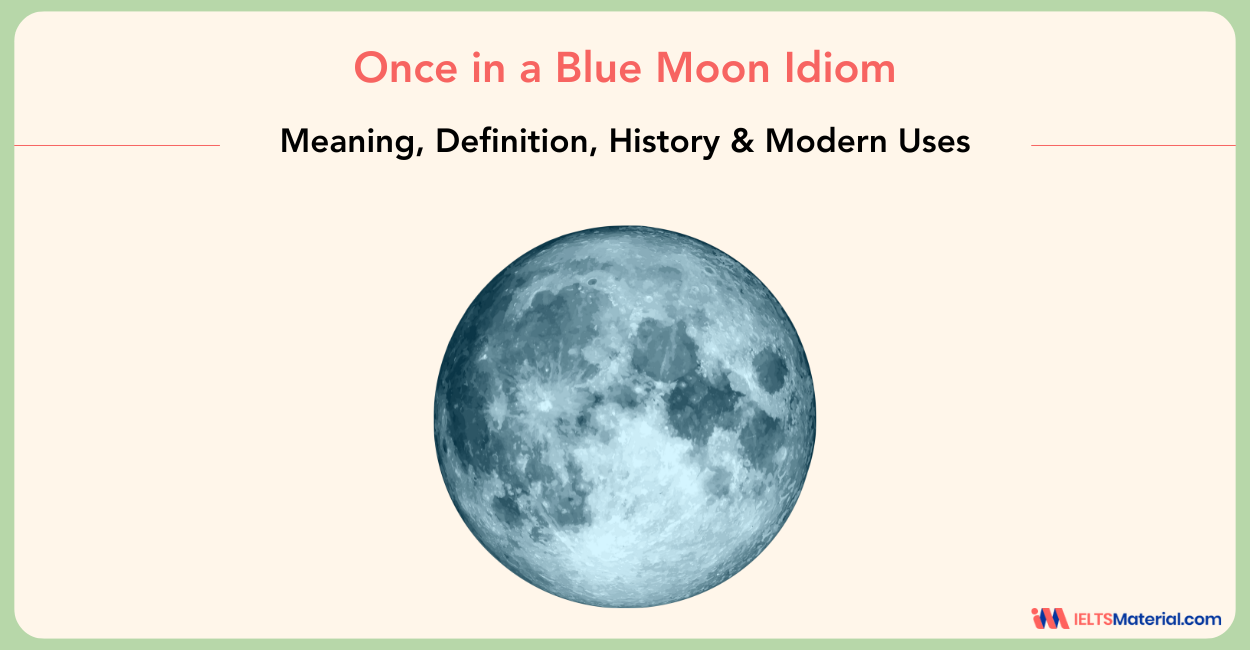Make a Mountain Out of a Mole’s Hill - Idiom Of The Day For IELTS
5 min read
Updated On
-
Copy link
This IELTS idiom 'Make a Mountain Out of a Mole’s Hill' refers to an exaggeration of a minor problem one faces and they treat it as a huge one. Find out its meaning, origin, and much more with exercises to help you use it accurately in your final test!
Table of Contents
- Meaning of the 'Make A Mountain Out Of A Molehill' IELTS Idiom
- Where Did the Idiom 'Make A Mountain Out Of A Molehill' Come From?
- Synonyms of the 'Make A Mountain Out Of A Molehill' Idiom
- Antonyms of the 'Make A Mountain Out Of A Molehill' Idiom
- Common Mistakes to Avoid While Using the 'Make A Mountain Out Of A Molehill' Idiom
- A Sample Scenario to Use the Idiom 'Make A Mountain Out Of A Molehill'
- Examples to Understand the Usage of the 'Make A Mountain Out Of A Molehill' Idiom in Sentences
- Using “Make A Mountain Out Of A Molehill” in IELTS Writing Task 2
- Why This Idiom Is Useful in IELTS

Limited-Time Offer : Access a FREE 10-Day IELTS Study Plan!
This IELTS idiom “Make a Mountain Out of a Mole’s Hill” is perfect for responding to questions about overreaction of a minor issue that has happened. The idiom directly means to talk about a situation where someone exaggerated about a situation.
In this blog of ours, you will perfectly learn how to use “Make a Mountain Out of a Mole’s Hill” accurately in your answers, with sample sentences, meanings, and context-based practice exercises to boost your IELTS exam’s lexical resource score.
Meaning of the 'Make A Mountain Out Of A Molehill' IELTS Idiom
This idiom “make a mountain out of a molehill” is a definition of an exaggeration of a minor problem or issue and treat it as though it is a huge matter. This is often used to talk about people who tend to overreact unnecessarily to small problems, making them seem way more worse than they really were.
In the IELTS exam context, the idiom is mainly useful in both the Speaking and Writing exams. You can use it in the exam to describe how some people at times react to minor problems, or when discussing certain social attitudes toward certain issues.
For example:
“I usually believe people should not make a mountain out of a molehill when they don’t pass a single exam; instead, they should be focusing on improving gradually.”
The idiom highlights a tendency to over-dramatize, that makes it perfect for talking about personal experiences or even giving opinions during the IELTS Speaking test.
Ready to crack your IELTS in the 1st go with the help of idioms? Book a FREE Demo!
Where Did the Idiom 'Make A Mountain Out Of A Molehill' Come From?
This phrase dates back to the early 16th century and the term “molehill” refers to the small mound of earth a mole creates when burrowing underground.
This idea is that a molehill is small and less important, whereas a mountain is huge and imposing. The earliest known use of this expression appeared in the year 1548 in John Heywood’s collection of proverbs, wherein it was written in the form:
"It is a great folly to make a mountain of a molehill."
Over the time, it became a popular idiom in English to warn against over-exaggeration or unnecessary drama in daily situations.
Synonyms of the 'Make A Mountain Out Of A Molehill' Idiom
- Overreacting
- Blowing out of proportion
- Exaggerating
- Making a big deal out of nothing
- Making something seem worse than it is
Antonyms of the 'Make A Mountain Out Of A Molehill' Idiom
- Taking things in stride
- Remaining calm
- Keeping things in perspective
- Treating problems proportionally
- Staying level-headed
Common Mistakes to Avoid While Using the 'Make A Mountain Out Of A Molehill' Idiom
- Using it in a literal context
Do not talk about actual mountains or molehills unless you are using it figuratively.
- Wrong structure
The correct form of it is “make a mountain out of a molehill” or “she/he makes a mountain out of a molehill.” Avoid by saying “making mountains from molehills.”
- Overuse in a formal writing
The idiom works well in semi-formal essays or in the IELTS Speaking test, but try to avoid using it too much in the formal IELTS Writing Task 2 essays.
- Incorrect tense usage
Be careful about verb tenses,
Correct: “He tends to make a mountain out of a molehill when he is faced with small challenges.”
Incorrect: “Rithu making a mountain out of a molehill.”
A Sample Scenario to Use the Idiom 'Make A Mountain Out Of A Molehill'
In the IELTS Writing Task 2, if you are asked to write about societal attitudes toward problems, you can write:
“In this modern society, some individuals tend to make a mountain out of a molehill, mainly when it comes to small inconveniences such as a delayed internet connection or a small misunderstanding in communication. This particular attitude can lead to unnecessary stress and conflicts.”
In the IELTS Speaking Part 2, when you are asked to describe a time someone overreacted, you can say:
“Once, my cousin accidentally spilled tea on a report. She made a mountain out of a molehill, acting as if it were a problem, even though this report was backed up and nothing was lost.”
This example clearly shows how the idiom applies to certain everyday experiences.
Examples to Understand the Usage of the 'Make A Mountain Out Of A Molehill' Idiom in Sentences
- Do not make a mountain out of a molehill – this was just a small mistake.
- My father always makes a mountain out of a molehill whenever my brother forgets to clean his room.
- There is no need to make a mountain out of a molehill about that issue in this report.
- In my view, we must stay calm and not make a mountain out of a molehill whenever minor problems occur.
- She tends to make a mountain out of a molehill whenever there is a slight delay in her work schedule.
Using “Make A Mountain Out Of A Molehill” in IELTS Writing Task 2
Whenever you are writing a balanced opinion essay on stress in modern life, you can say:
“Most people today make a mountain out of a molehill by stressing excessively over small issues such as email delays or facebook comments. This particularly contributes to a society where anxiety levels are unnecessarily high, preventing people from focusing on more important challenges.”
This makes your essay sound more natural while showing your ability to use these kinds of idioms appropriately.
Why This Idiom Is Useful in IELTS
This idiom “make a mountain out of a molehill” is mainly useful because it conveys an important opinion about overreaction or exaggeration which is a common IELTS Writing and Speaking topic. Whether discussing family disagreements, workplace problems, or social behavior, the idiom adds depth and expression to your language.
For instance, in the IELTS Speaking Part 3, when asked why people overreact nowadays, you can say:
“I think most people make a mountain out of a molehill because of this fast pace of life and the pressure to perform aptly, which makes even small setbacks feel overwhelming.”
Also Check:
Explore IELTS Resources

Start Preparing for IELTS: Get Your 10-Day Study Plan Today!
Recent Articles

Kasturika Samanta

Prity Mallick

Nehasri Ravishenbagam





Post your Comments